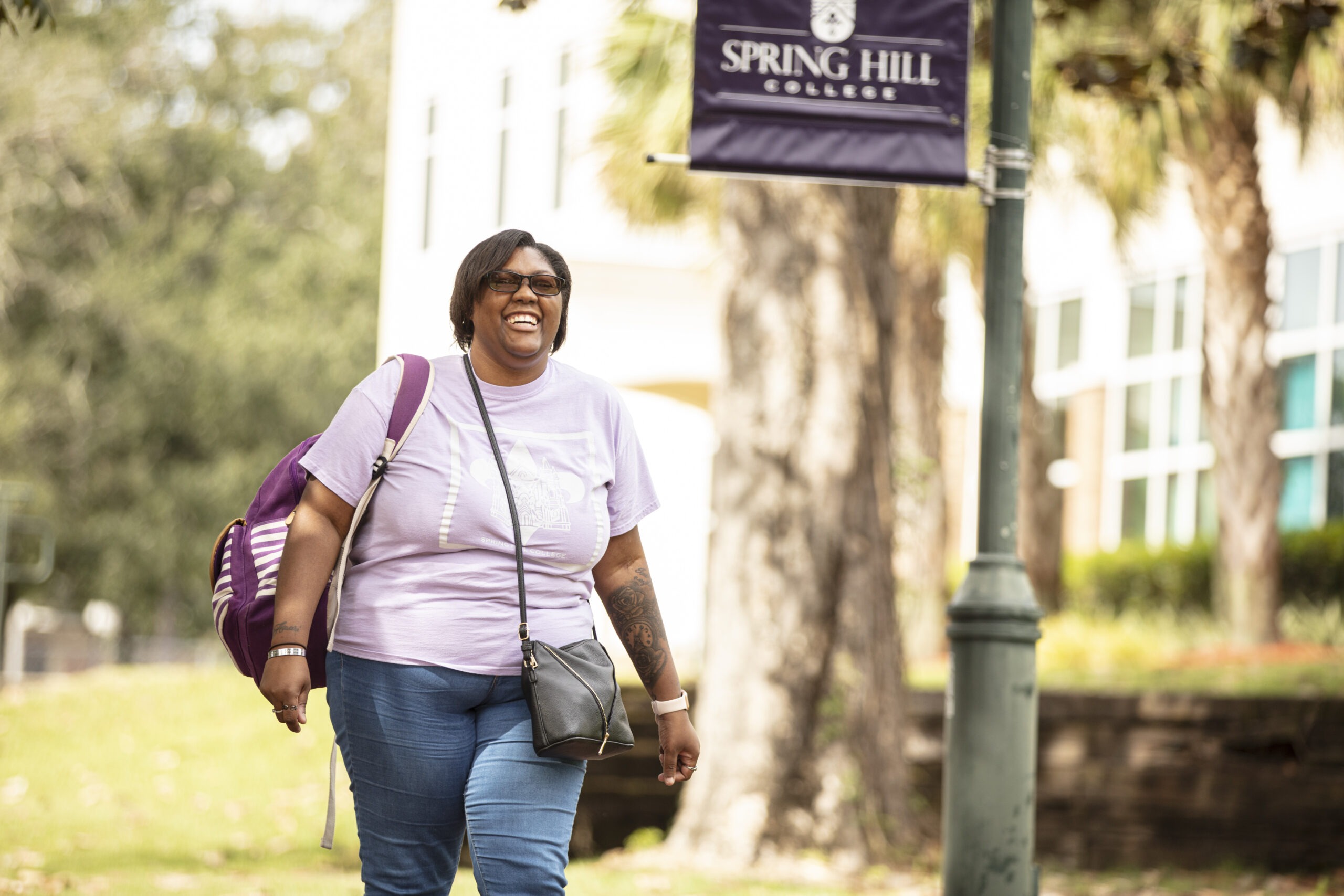Harold Dorton
Division Chair of Social Sciences, Department Chair of Sociology
Are you intrigued by human nature and the factors that shape it? Are you fascinated by social relationships, behavior, and shared beliefs in a common culture? Would you like to analyze issues that deal with racial and gender identity, family conflict, deviant behavior, aging, and religious faith?
As a sociology or criminology major at Spring Hill College, you’ll study, analyze, and debate these topics and many more. You’ll delve into important questions that compare crime and law, poverty and wealth, as well as prejudice and discrimination. On a global level, you’ll consider what factors help maintain a society’s stability and the problems that stimulate radical change.
At SHC, you’ll enjoy a challenging, but supportive, classroom environment in which faculty members give high priority to quality instruction, hand-on experience, and student success.

With programs focused in Sociology and Criminology, Spring Hill College provides a more holistic education and experience to those wanting to improve their communities.
From the ASA (American Sociology Association):
Today, sociologists embark upon literally hundreds of career paths. Although teaching and conducting research remains the dominant activity among the thousands of professional sociologists today, other forms of employment are growing both in number and significance. In some sectors, sociologists work closely with economists, political scientists, anthropologists, psychologists, social workers, and others, reflecting a growing appreciation of sociology’s contributions to interdisciplinary analysis and action.
FBI Mobile Field Office, Mobile Police Department, Georgia State Patrol, Joint Command Gulf Coast Technology Center, Mobile Public Defender’s Office, Baldwin County Sherriff’s Department, Little Flower preschool, Butler University, State Farm, Allstate, Chicago PD, Colorado Springs PD, Valencia County (NM) Sherriff’s Department, Mc-Graw Hill Publishing, St. Tammany Sherriff’s Department, Weyerhaeuser, Health Connect America, South Alabama Center for Fair Housing, US Agency for International Development
Mobile Police Department, Via Senior Services Center, City of Mobile, Housing First, Spring Hill College, Mobile Court’s Victim’s Services, Mobile Public Schools, AARP of Alabama, Lifelines counseling, Behavioral Frontiers, Wilmer Hall, Baldwin County Sheriff’s office, Hoover Police Department, Weyerhaeuser, Boy Scouts of America, L’Arch Mobile
Baylor University, College of the Holy Cross, Louisiana State University, University of Alabama in Birmingham, University of Alabama, University of South Alabama, Seattle University, University of New Orleans, Tulane University, Loyola University Baltimore, Mississippi State University, Regis University, Howard University

Division Chair of Social Sciences, Department Chair of Sociology

Assistant Professor
Project THRIVE
Focused on creating community and individual resiliency and healing following violent incidents. Related research involves violence reduction, identity protection, and masculinity and family.
Recent Publications